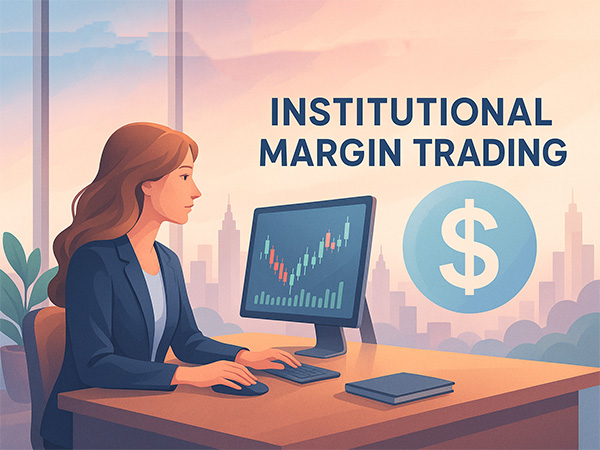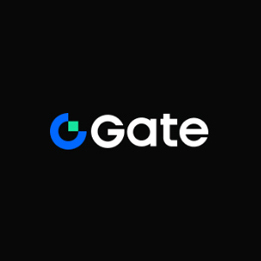The Complete Guide to Cryptocurrency Margin Trading: 2025 Institutional Strategies and Practical Handbook

In today’s rapidly evolving digital asset space, margin trading has transitioned from a speculative tool on the fringes to a core component of institutional portfolios. Latest data from 2025 shows that the global cryptocurrency margin trading market has surpassed $900 billion, accounting for 31.2% of the entire digital asset market. This growth reflects the maturation of financial infrastructure and the widespread adoption of professional trading strategies.
1.Core Mechanisms of Margin Trading
Modern Applications of Leverage
The essence of margin trading is to obtain additional positions using collateral assets as financial leverage. The innovation of 2025 is the widespread adoption of dynamic leverage systems. For example, Binance’s Smart Leverage technology adjusts the maximum available leverage in real-time based on market volatility. When BTC volatility exceeds 5%, the leverage automatically decreases from 100x to 50x. This mechanism has reduced liquidation losses at major exchanges by 62% year-over-year.
Key Points:
-
Dynamic leverage systems become the industry standard
-
Volatility triggers automatic leverage reduction mechanisms
-
Major exchanges have significantly reduced liquidation losses
Evolution of Collateral Management
Modern collateral systems have developed three innovative models: cross-asset collateral pools unify mainstream assets such as BTC and ETH for valuation, stablecoin collateral enjoys a 2% value premium, and blue-chip NFT projects can be discounted by 30% as collateral. This diversified collateral system increases capital efficiency by 40%, but also adds complexity to risk assessment.
Core Innovations:
-
Cross-asset collateral pool technology
-
Stablecoin collateral premium mechanism
-
New asset collateral solutions such as NFTs
2.Institutional Trading Strategy Analysis
Multi-Timeframe Analysis Framework
Professional traders in 2025 commonly adopt a three-dimensional analysis framework that integrates macro liquidity, mid-level market structure, and micro order flow. This analysis method increases trend prediction accuracy to 65%, a 23% improvement over single-timeframe analysis.
Analysis Dimensions:
-
Macro: Global liquidity indicators
-
Mid-level: Derivatives market structure
-
Micro: Order book dynamics
Innovative Applications of Hedging Strategies
2025’s hedging toolbox includes complex strategies such as cross-exchange triangular arbitrage, volatility derivatives, and regulatory arbitrage. Data shows that institutions using composite hedging strategies experience 58% lower volatility in returns compared to those using single strategies.
Mainstream Hedging Tools:
-
Cross-exchange price arbitrage
-
VIX-like crypto derivatives
-
Cross-jurisdiction position allocation
3. Risk Management Framework
Systemic Risk Control
Top trading teams in 2025 have established seven lines of defense, ranging from daily stop-loss limits to black-swan stress tests, forming a complete protective system. This multi-layered defense mechanism increases the survival rate during extreme market conditions to 92%.
Risk Control Layers:
-
Basic: Daily stop-loss limits
-
Mid-level: Dynamic leverage adjustments
-
Advanced: Stress test solutions
Margin Call Prevention
Intelligent early warning systems monitor four key indicators in real time, automatically triggering defense measures when any indicator reaches a threshold. This preventive risk control reduces margin call events by 71%.
Key Monitoring Indicators:
-
Account margin ratio
-
Position concentration
-
Collateral depreciation speed
-
Volatility of correlated assets
4.New Market Characteristics in 2025
Regulatory Compliance Key Points
The global regulatory landscape shows clear fragmentation, from the SEC’s risk score requirements in the U.S. to the EU’s MiCA leverage cap of 20x. This fragmented regulatory environment has increased compliance costs by an average of 15%, but it has also created cross-market arbitrage opportunities.
Key Regulatory Differences:
-
U.S.: Mandatory risk disclosure
-
EU: Leverage cap regulations
-
Singapore: Qualified investor thresholds
-
Middle East: Stress test requirements
5.The Beginner’s Path to Advancement
Phased Learning Curve
The recommended six-month growth path combines theoretical learning with practical verification. Data shows that learners who follow this path have an 85% survival rate over six months, far higher than the 53% rate of those exploring independently.
Stage Focus:
-
Foundation strengthening period (1-2 months)
-
Strategy validation period (3-4 months)
-
Scaling period (5-6 months)
Conclusion: Future Outlook
Technological breakthroughs in 2025-2026 will focus on three areas: quantum-resistant encryption, AI leverage systems, and hybrid collateral pools. These innovations could reshape the entire industry.
Market Structure Prediction
Key judgments based on the current development trajectory:
-
Institutional market share will surpass 45%
-
Cross-asset margin trading will become standard
-
RegTech (Regulatory Technology) investments will grow by 300%
In this algorithm-driven new era, successful margin trading requires building a complete capability pyramid: at the base is solid technical analysis, in the middle is strict risk management, and at the top is a keen grasp of macro liquidity. Trading data from 2025 shows that investors using systematic methods have a 68% chance of sustained profitability, while emotional traders face an 83% failure rate. Remember, in a market that evolves every minute, continuous learning is the ultimate competitive advantage.
-
Sign Up

OKX
OKX is a leading global digital asset trading platform offering spot and derivatives services for cryptocurrencies.
-
Sign Up

Binance
Binance is one of the world's largest cryptocurrency exchanges, offering spot, futures, staking, and a wide range of digital asset services.
-
Sign Up

Bybit
Bybit is a global cryptocurrency exchange specializing in derivatives, spot trading, and crypto-financial products.
-
Sign Up

Gate.io
Gate.io is a leading crypto exchange offering diverse trading options, low fees, and strong security since 2013.
- What is Slippage in the Cryptocurrency Market, and What Causes It?
- What Is a Crypto Airdrop? How to Get Cryptocurrency Airdrops
- The Complete Guide to Cryptocurrency Margin Trading: 2025 Institutional Strategies and Practical Handbook
- Does the Four-Year Bitcoin Cycle Still Exist? Bitcoin Price Prediction for 2025
